SPORTS TO SPIRITS
Taking cane over the line at Sugar Baron
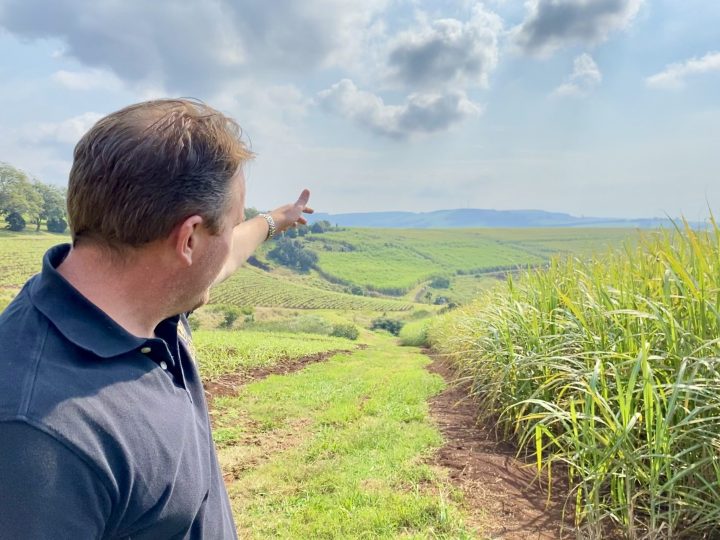
A sugarcane farmer’s son destined for sports science veers into making rum in the KZN Midlands.
In 2000, Brad O’Neill, an unassuming sugarcane farmer’s son from the KZN Midlands, packed his kit and headed to the Cape, intent on tackling sports science at Stellenbosch. And tackle it he did, but – like so many Maties before him – Brad found himself more and more distracted by the other thing the student town is famed for: wine.
“After drinking quite a lot of wine, and meeting some really decent wine folk, I was intrigued,” admits Brad. “I realised I didn’t want to become a gym instructor, or a physiotherapist, or a biokineticist … or anything like that.”
Following “no side”, Brad jogged off campus and directly into the Cape Wine Academy to learn all about the fruits of the vine.
Along the way, though, he’d found another love in the shape of Marisa. She too, was studying sports science, yet despite an overlap of classes it was a serendipitous weekend away with mutual friends that brought the pair together.
“We looked at each other, and that was it,” recalls Marisa, smiling at Brad.
Before they’d even finished studying, they were engaged, and by 2003 they were wed.
The teammates settled in Cape Town. For the next seven years, Brad worked in wine retail and distribution, while Marisa did front-of-house in hotels before taking to the air as cabin crew.
As their careers in F&B flourished, they’d often urge Brad’s dad, Roger, to put his cane to a more spirited use and try distillation. As Marisa recounts, however, he would always reply along the lines of, “I’m a sugarcane farmer. What do I know about rum?”
In early 2010, Roger fell suddenly ill, and the young couple had to rapidly decide if they’d take over the land or not. They took the plunge, leaving their fast-paced city life behind to live on Seafield Farm, named for how the cane resembles the ocean when it blows in the wind.
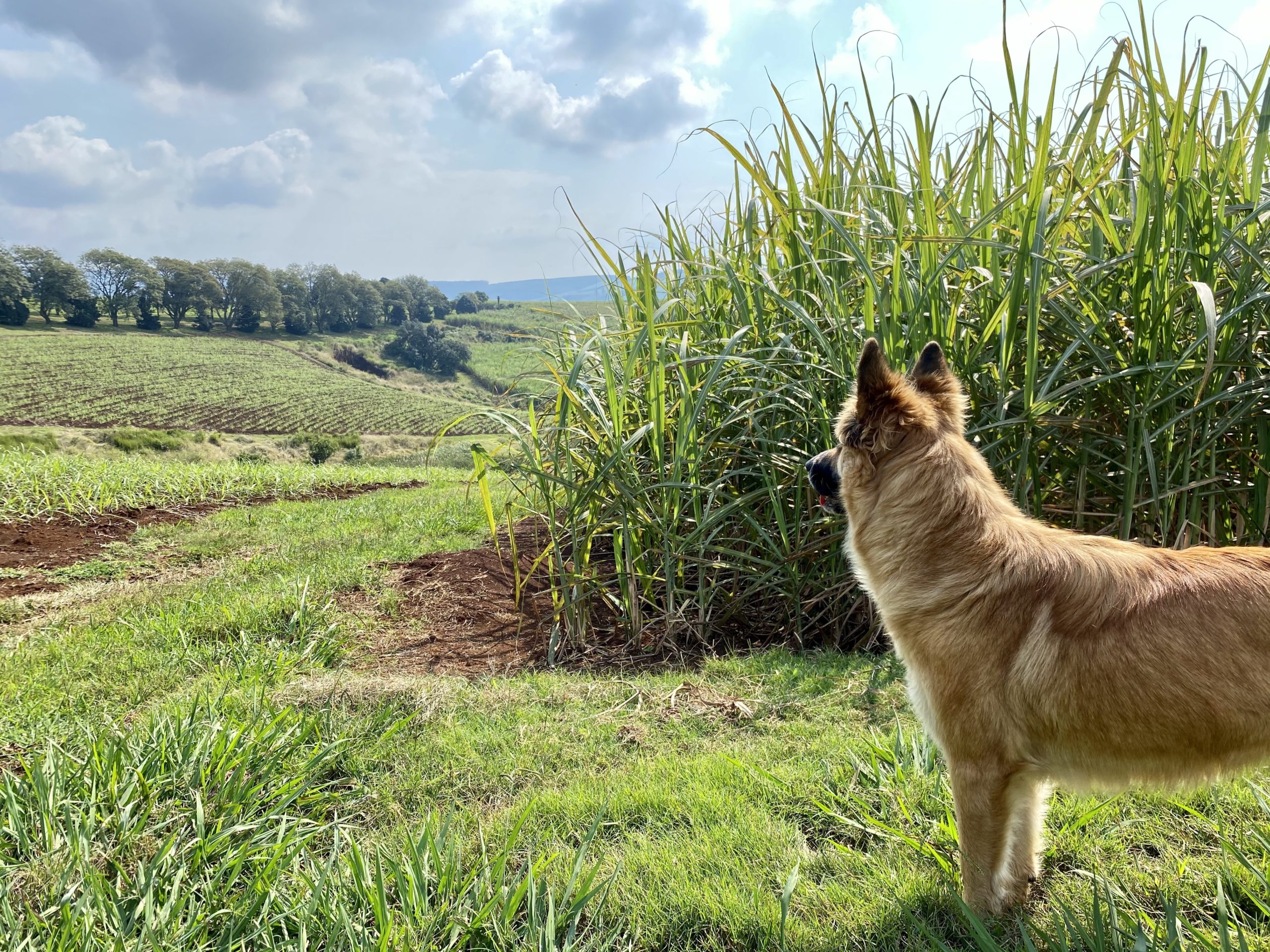
Honey Bun, the rum hound, surveying Seafield Farm. (Photo: Leah van Deventer)
On his deathbed, Roger encouraged his son to make the rum he’d always talked about. “Life is short,” he said. “Just do it.”
However, adjusting to farm life was all consuming, as was starting a family, and so the dream was benched.
“[The idea] was reinvigorated in 2014 when we went to Mauritius, and saw what Chamarel and St Aubin were doing,” shares Brad.
These are established estate-rum producers, where the cane is both grown and distilled on the farm. The rum itself is made in the Agricole style, from freshly-pressed sugarcane juice, as opposed to sugar syrup or molasses. As you’d expect, the wild funk of the fermented juice carries through to the final product.
Although inspired to make an agricultural rum of their own, life got in the way again until late 2017, when Brad and Marisa had a sign they couldn’t ignore.
“We got on a flight to Cape Town, and we’d just started talking about looking into it again – because we didn’t know where to start – when we picked up the inflight magazine and on the cover was ‘How to make Mauritian rum’, with a pictogram,” reveals Marisa.
As soon as they were home, they signed up for a distillation course with Distillique, applied for the relevant licences and started tinkering with a 100-litre column still.
By the time they’d scrummed their way through all the red tape it was October 2019. By then, they’d upgraded to The Baroness, a 200-litre hybrid still, and in November 2019 they launched their brand.

The Baroness hybrid still at Sugar Baron. (Photo: Leah van Deventer)
Brad and Marisa named their rum Sugar Baron, in honour of Roger. There’s an Easter egg in the name too, as “ron” is both Spanish for rum as well as Roger O’Neill’s initials.
Then, of course, the pandemic hit in early 2020, and the production and sale of alcohol was prohibited on and off as the nation came to grips with fighting the virus. So in addition to the regular challenges of starting a new business, introducing Sugar Baron to the market involved frustrating stop-start play as the bans were lifted and reinstated.
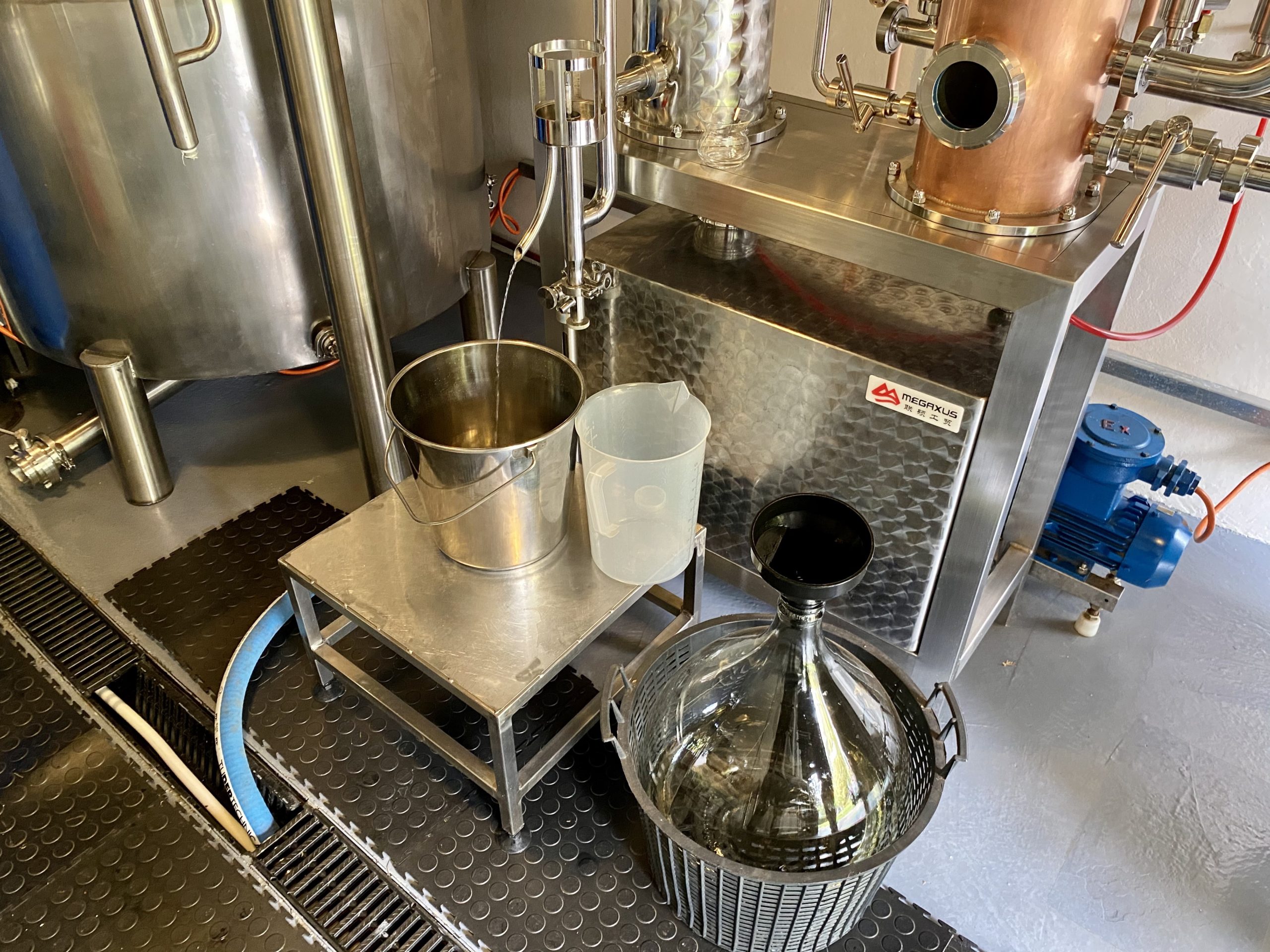
Rum running through the still at Sugar Baron. (Photo: Leah van Deventer)
For the last four months, the game has been flowing, and Sugar Baron is proving itself to be a rising star in South Africa’s rum-Agricole division.
Of the 300-ish hectares of land at Seafield, a little over 200 is dedicated to sugarcane. Most is still sent to Tongaat Hulett, but now a portion is set aside for the 350-odd bottles of high quality rum Team O’Neill produces each month.
The cane is cut first thing in the morning, and taken directly to the distillery. Here it’s hand-run through a small press, and the resulting juice is immediately put into fermentation tanks.
After a couple of days, the liquid is distilled before being rested in glass demijohns for six to 12 weeks. From there, some of the rum is bottled for their flagship Sugar Baron White Rum, while some gets barrelled for ageing.
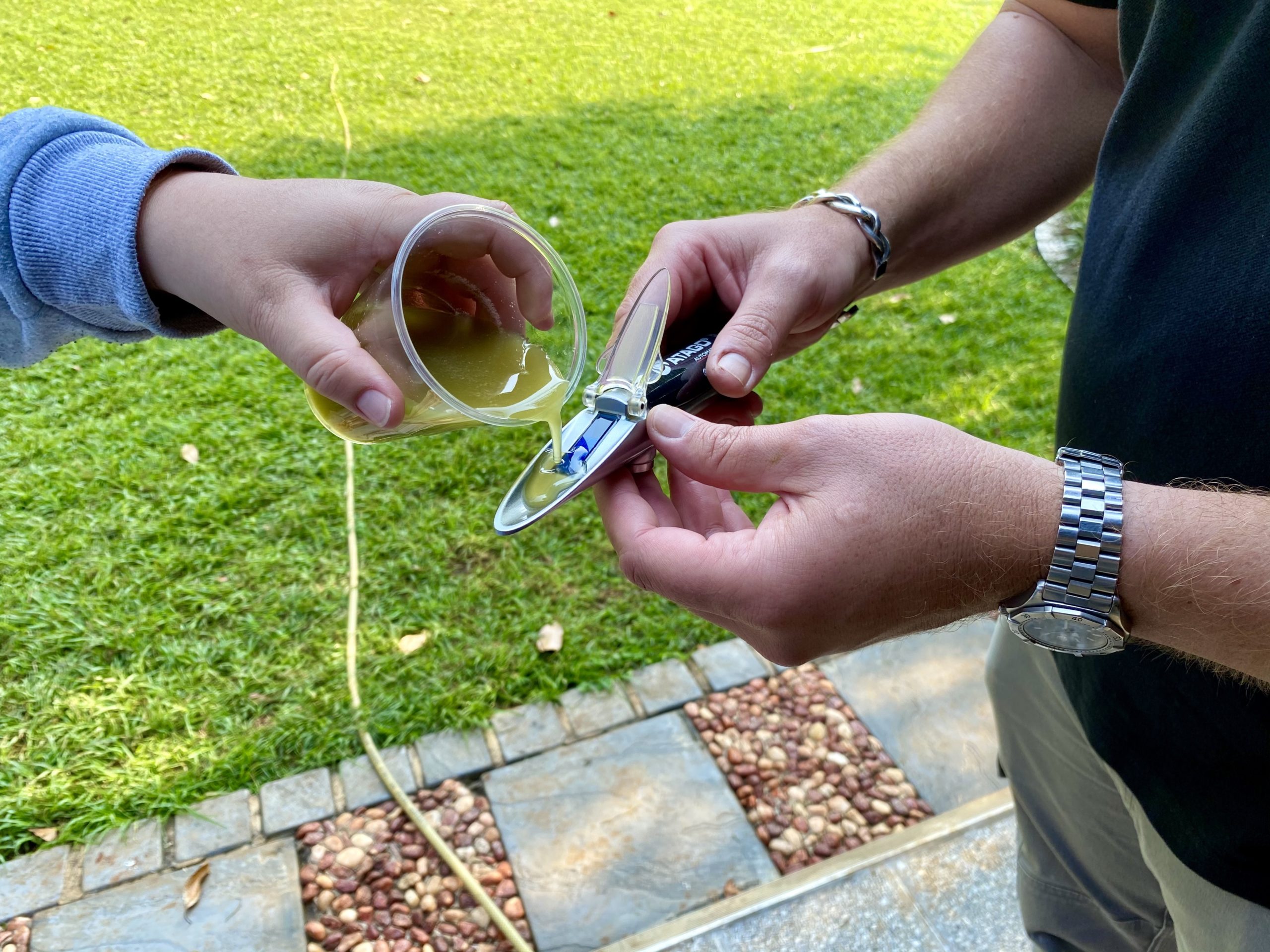
Brad measures the sugar content of the fresh sugarcane juice. (Photo: Leah van Deventer)
As everything is done on the farm, Sugar Baron is an authentic farm-to-bottle, estate product.
Although the O’Neills have overcome multiple obstructions already, their biggest test match lies ahead, and that’s in changing the perceptions around rum in South Africa.
“So many people say they don’t like rum because they don’t like Captain Morgan. And although we explain that our product is made in a very different style, they don’t even want to taste it,” Brad confides.
They also often have visitors who ask to taste their gin. Believe it or not, most gin in South Africa is actually made from sugarcane, so Brad and Marisa are quite capable of producing gin, but they feel that adding gin to their portfolio will just confuse people.
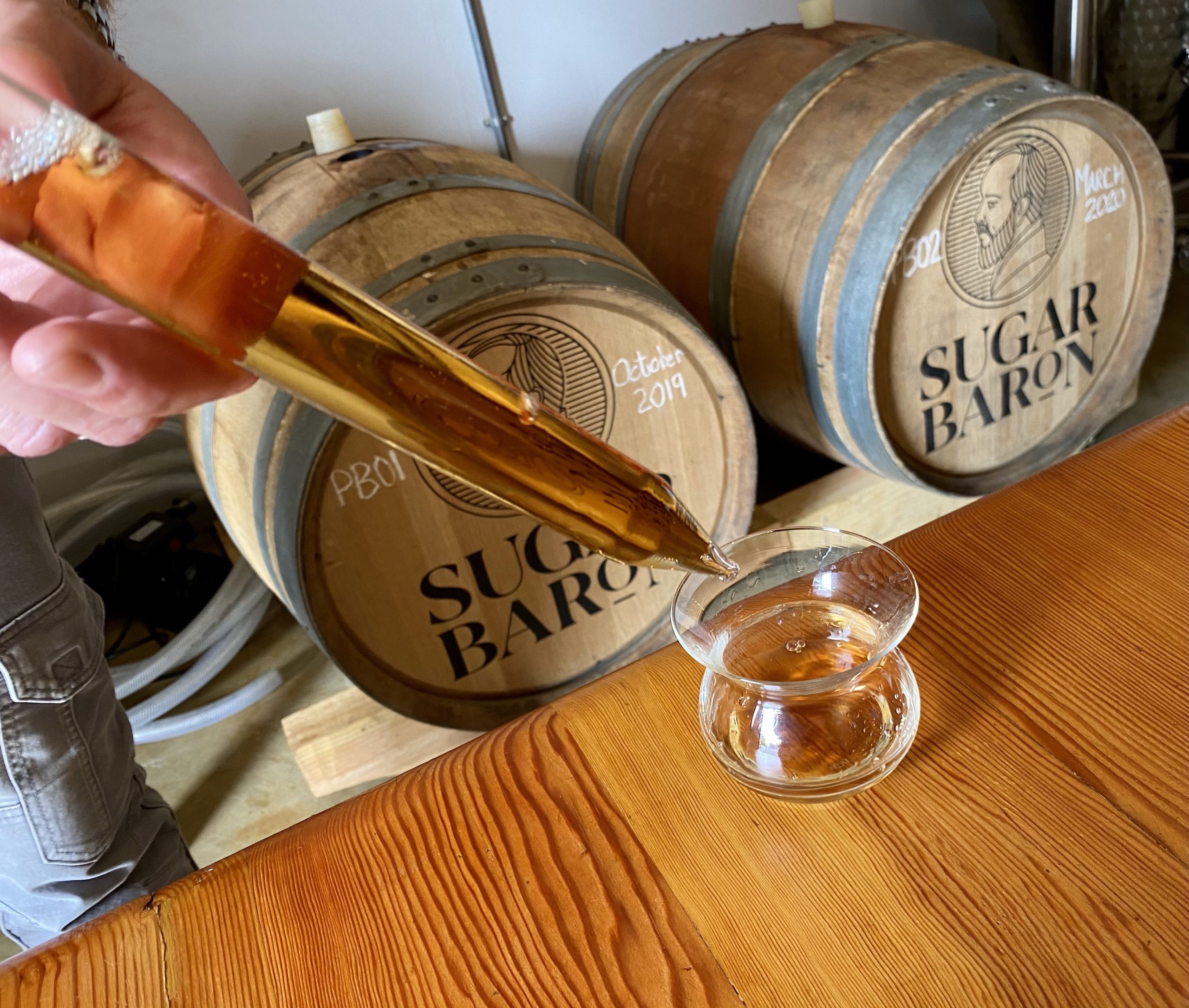
Brad shares a sample of Sugar Baron from the barrel. (Photo: Leah van Deventer)
“We want to do the best rum possible … this is where our passion lies,” affirms Marisa. “We want to extract the essence of this beautiful product that we have on our doorstep, and show people what rum can be.”
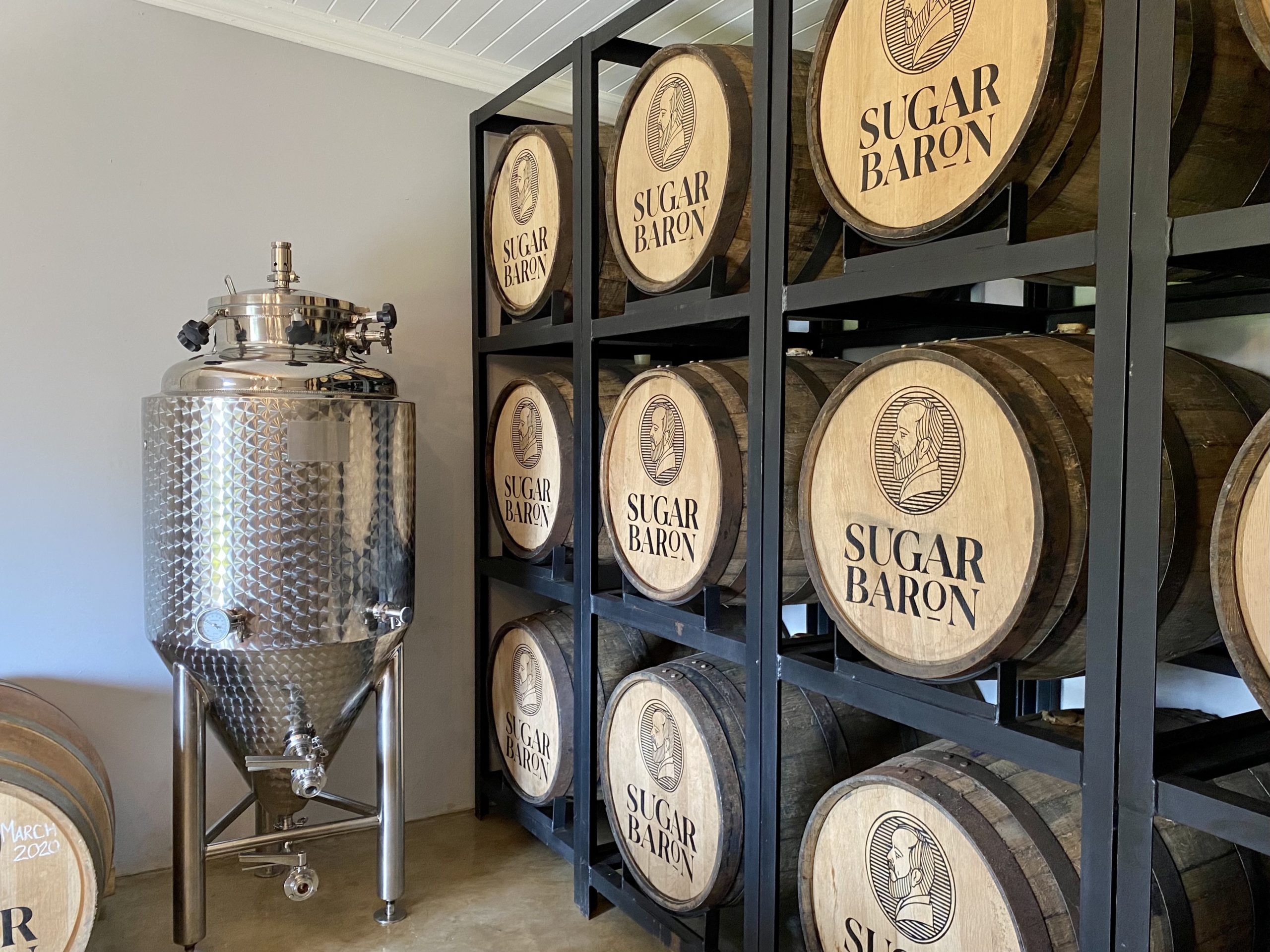
Sugar Baron’s solera ageing system. (Photo: Leah van Deventer)
Sugar Baron recently launched a confectionery range with rum fudge (available in three flavours: original, rum and dried pineapple and rum and roasted coconut) and rum fudge sauce.
Curious? Try it for yourself. The farm is open for tours and tastings, or you can simply buy Sugar Baron online. DM/TGIFood
The author supports the Mother Soup Project, a charity by Woodstock Brewery that feeds 21,000 hungry Capetonians soup a day using brewery equipment. Please assist the team here.
For more boozy news, catch Leah on Twitter or Instagram






 Become an Insider
Become an Insider
Comments - Please login in order to comment.